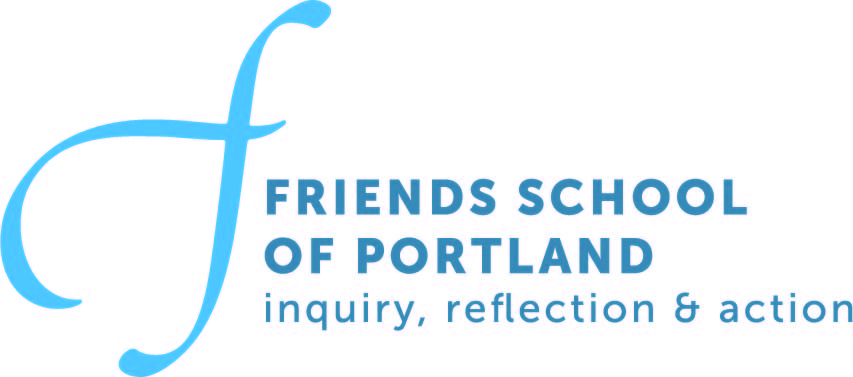“One of the larger purposes of Friends School of Portland is to witness to our children and our community that there is a way for all of us to be in society that is based on the transforming power of love. “ — Mary Tracy, FSP Founding Teacher
What makes us different?
Quaker Pedagogy
Our belief that there is light in each of us leads to the conclusion that we are all natural learners, and we all have something to teach. We center our students’ unique challenges, gifts, and passions as integral to the learning process.
Our belief in continuing revelation leads us to the conclusion that the pursuit of truth is an active process, to be practiced in community and through a lifetime.
Rooted in the Quaker testimonies of simplicity, peace, integrity, community, and equality, we center equity and stewardship in our curriculum and pedagogical practices.
Inquiry-Reflection-Action
Inquiry-Reflection-Action describes the approach we use at FSP for teaching and learning. It mirrors Quaker practices of asking queries, silent reflection, and “letting our lives speak.”
Inquiry
In a community of learners, students and teachers alike frame questions, investigate topics and ideas, practice frequent reflection, and connect learning to individual and group action within our communities.
Kindergarten: How do we take care of ourselves, each other, and our world?
3rd/4th grade: What is the power of a story?
7th/8th grade: What is truth?
Reflection
Through daily silence, journaling, class discussions, and reflection-based assignments, students reflect on the world and their place it it.
Action
In the spirit of the Quaker phrase “Let your life speak”, students put new learning into action. This might look like a new way of approaching forest play, a new way of managing conflict with a peer, or a larger project that engages students in activism or service.
Culture of Joyful Learning
At Friends School of Portland, children of all ages engage in rigorous learning through exploration, authentic engagement, and play. Rigorous thinking practices such as evaluation, analysis, and creation are the ones that children more naturally engage during open-ended, playful moments: working out tricky math problem with a classmate, creating a group project, writing and performing a skit, articulating a hypothesis and supporting it, or engaging in open-ended play.
To be clear, “playful” does not mean “comfortable“. In fact, this kind of rich learning requires students to grapple with ideas; it can feel messy, uncertain, and decidedly uncomfortable at times. It also requires that students feel safe enough to take risks. And so, at Friends School, a supportive community is not antithetical to rigorous learning, but a prerequisite for it
At Friends School of Portland, we believe that deep and meaningful learning is also engaging, satisfying, connective, and, ultimately, joyful.

